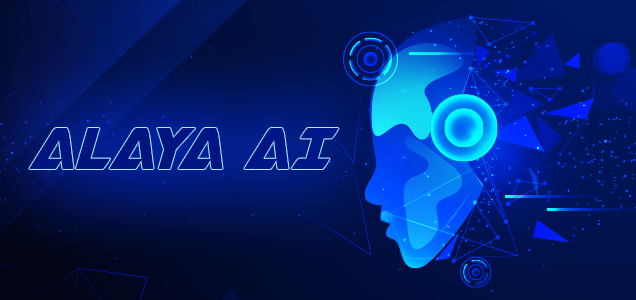In the ever-evolving landscape of artificial intelligence, Alaya AI has emerged as a groundbreaking force, pushing the boundaries of what is possible in the realm of machine learning and cognitive computing. This article delves into the intricacies of Alaya AI, exploring its origins, key features, potential applications, and the impact it could have on various industries.
Origins of Alaya AI
Alaya AI was developed by a team of visionary researchers and engineers who sought to create an AI system that could surpass existing models in terms of adaptability, efficiency, and learning capabilities. The project’s inception was rooted in the realization that traditional AI systems faced limitations in dealing with complex and dynamic environments. Alaya AI was conceived as a solution to address these challenges, incorporating cutting-edge technologies and methodologies.
Key Features of Alaya AI
Adaptive Learning
One of the standout features of Alaya AI is its ability to adapt and learn in real-time. Unlike conventional machine learning models that require extensive retraining to accommodate new data, Alaya AI can dynamically adjust its algorithms, making it well-suited for applications in rapidly changing environments.
Cognitive Flexibility
Alaya AI exhibits cognitive flexibility, allowing it to seamlessly transition between different tasks and domains. This adaptability is crucial for applications such as autonomous vehicles, robotics, and complex decision-making scenarios where the AI system must handle diverse sets of information and tasks.
Self-Optimizing Algorithms
Alaya AI incorporates self-optimizing algorithms that continuously refine themselves based on feedback and performance metrics. This self-improvement mechanism not only enhances the efficiency of the AI system but also reduces the need for constant human intervention in the training process.
Explainability and Transparency
Addressing the longstanding challenge of AI black-box models, Alaya A’I prioritizes explainability and transparency. Users can gain insights into the decision-making process of the AI system, fostering trust and understanding, which is crucial in applications like healthcare and finance.
Potential Applications of Alaya AI
Healthcare
Alaya AI holds immense promise in the healthcare sector. Its adaptive learning capabilities can be leveraged for personalized medicine, drug discovery, and diagnostics. The explainability feature is particularly valuable in critical decision-making processes, ensuring that healthcare professionals can trust and understand the AI’s recommendations.
Autonomous Systems
In the realm of autonomous vehicles, drones, and robotic systems, Alaya AI’s cognitive flexibility and adaptive learning are game-changers. These features enable the AI to navigate complex and dynamic environments, making split-second decisions based on real-time data.
Finance and Fraud Detection
The self-optimizing algorithms of Alaya A’I make it well-suited for applications in finance. It can adapt to changing market conditions, optimize investment strategies, and enhance fraud detection systems by learning and evolving alongside new fraud patterns.
Education
Alaya A’I has the potential to revolutionize education by providing personalized learning experiences. Its adaptive learning capabilities can tailor educational content to individual students, addressing their strengths and weaknesses. The explainability feature ensures that educators and students can understand how the AI arrives at its recommendations.
Impact on Industries
Increased Efficiency
Industries adopting Alaya A’I can benefit from increased operational efficiency. The self-optimizing nature of the algorithms ensures that the AI system continually improves its performance, leading to enhanced productivity and reduced resource requirements.
Enhanced Decision-Making
The cognitive flexibility and adaptability of Alaya A’I empower industries to make more informed and timely decisions. Whether it’s in manufacturing, logistics, or customer service, the AI system’s ability to process vast amounts of data and dynamically adjust to changing circumstances is a significant asset.
Reduced Human Error
In applications where precision is paramount, such as healthcare and finance, the implementation of Alaya A’I can lead to a reduction in human error. The AI’s ability to learn from historical data and adapt to new information can significantly improve decision accuracy.
Fostering Innovation
By providing a platform for continuous learning and adaptation, Alaya AI fosters innovation across industries. Its ability to tackle complex challenges and evolve with new information encourages businesses to explore novel solutions and push the boundaries of what is possible.
Challenges and Considerations
Despite its numerous advantages, the adoption of Alaya AI also raises certain challenges and considerations. Issues related to data privacy, ethical use, and potential biases in the algorithms must be carefully addressed. Additionally, ensuring that the explainability feature is robust and comprehensive is crucial for building trust among users and stakeholders.
Conclusion
Alaya AI represents a significant leap forward in the field of artificial intelligence, offering a set of features that set it apart from traditional models. Its adaptive learning, cognitive flexibility, self-optimizing algorithms, and emphasis on explainability position it as a versatile and trustworthy tool for a wide range of applications. As industries continue to explore the possibilities that Alaya AI unlocks, it is imperative to approach its implementation with a focus on ethical considerations and responsible use. The journey towards realizing the full potential of Alaya A’I involves collaboration between researchers, developers, and policymakers to ensure its positive impact on society.







